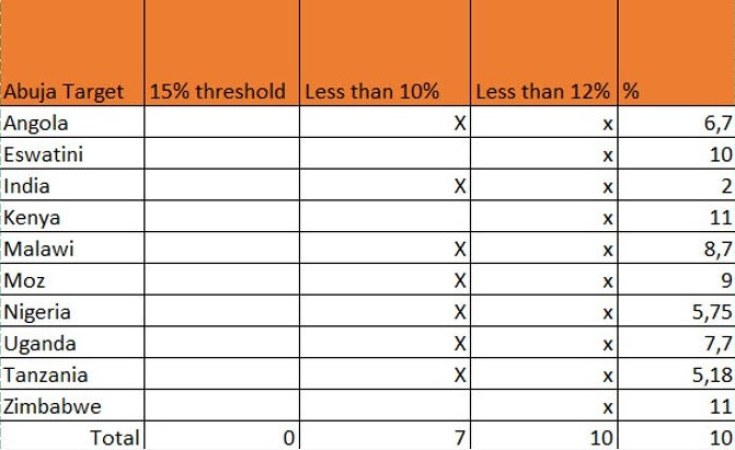Rwanda is bracing for reduced aid from global organisations in its fight against HIV/AIDs, as they are reprioritising their resources to countries that are a long way off in the struggle against the disease.
The country is one of those that have made significant achievements in managing HIV/AIDS, having reached the "95-95-95" target set by the Joint United Nations Programme on HIV/AIDS (UNAIDS).
The "95-95-95" target aims at diagnosing 95 per cent of all HIV-positive individuals, providing antiretroviral therapy (ART) for 95 per cent of those diagnosed, and achieving viral suppression for 95 per cent of those treated by 2030.
Speaking during an event to observe the World AIDS Day on Thursday, November 30, Hind Hassan, UNAIDS Representative to Rwanda said donors are reprioritising their funding to focus on countries with more need.
"Because Rwanda and other countries have achieved so much progress, donors are reallocating their resources to other countries where they are much more needed," she noted.
"So, we do have to look at domestic resource financing and mobilisation, and for that we have to look at who is not on the discussion table right now, an example is the private sector. How can we mobilise for the engagement of the private sector to generate resources for the response?" she added.
In a big way, Rwanda uses external resources to provide care for more than 220,000 people living with HIV in the country.
ALSO READ: Rwanda plans to acquire injectable HIV/AIDs drugs
The Antiretroviral medication is manufactured in foreign countries and provided to Rwanda via an arrangement that is mainly financed through the Global Fund or the US President's Emergency Plan for AIDS Relief (PEPFAR).
Sylvie Muneza, the Chairperson of Rwanda Network of People Living with HIV/AIDs also expressed concerns regarding reduced donor aid.
"The aid is continuing to reduce. We hope more donors come up so that we can reach the targets we set," she said.
The Rwanda Biomedical Centre (RBC) has a plan to close the resource gap, making it a priority that there is sustainable financing for the national HIV response.
Basile Ikuzo, the Director of the HIV Prevention Unit at RBC told the media that it is true there are some concerns regarding aid, but said that the government continues to take alternative measures to counter the changes that are coming up.
According to the government's HIV response plan, there is a need for exploring strategies to minimise costs and increase efficiency gains within the sector and plan a long-term strategy to increase domestic funding for HIV program.
Among the things that the country is doing is bringing on board the private sector and increasing its involvement in HIV response by investing in health.
Dr Sabin Nsanzimana, the Minister of Health, in a speech he made at an event to mark World AIDs Day, said the disease is not yet finished.
"There are people who are dying of AIDS as we speak and unfortunately there are young people who are getting infected as we speak," he noted, adding that when young people get tested and start treatment, their compliance to treatment is low.
There are an estimated 5,400 new cases of HIV annually among adults in Rwanda, according to the Rwanda Population-Based HIV Impact Assessment (RPHIA), a national household-based survey that was conducted between October 2018 and March 2019.
According to the Rwanda Population-Based HIV Impact Assessment (RPHIA), a national household-based survey conducted between October 2018 and March, the prevalence of HIV among adults in Rwanda was 3.0 per cent.


